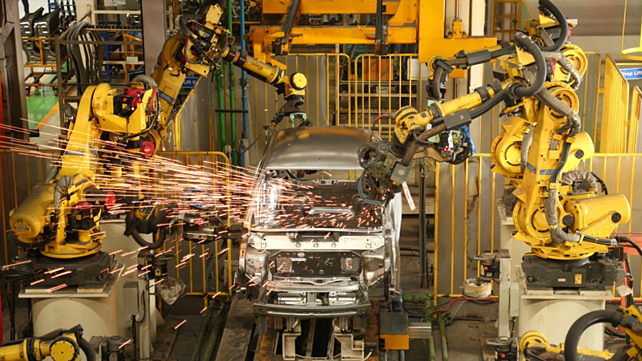
The Indian passenger vehicle market, which was slowly getting back on the recovery mode post the COVID-19 outbreak last year, has been completely derailed in the month of May 2021.
The second wave of the pandemic, and the resultant lockdown in almost 80% of the car market in India, resulted in a fall of 64% to 103,171 units in May 2021 as compared to 286,581 units in April 2021.
This analysis pits sales in May 2021 against sales in April 2021. Readers would recall that May 2020 was under a national lockdown, which had led to a complete disruption of the manufacturing sector and the supply chain.
Unlike May 2020, this May there was no national lockdown, but state lockdowns disrupted the manufacturing processes. With majority of dealerships closed, there was an overall impact on wholesale and retail sales. According to an estimate, states with complete lockdowns represent 50-60% of volumes across segments.
Maruti Suzuki India, which accounts for 50% of the passenger vehicles market in India, was among the worst affected carmakers as it advanced its periodic maintenance from May 1, 2021 to May 16, 2021. The company managed to dispatch only 32,903 units to its dealers compared to 135,879 units it dispatched in April 2021.
Shashank Srivastava, Executive Director (Sales & Marketing), MSIL told Mobility Outlook, “May was a muted month both for wholesales as well as retails as most states were in lockdown. About 25 states were under lockdown. Retail sales was badly affected as most of the dealerships were closed. Moreover, dealers were under stress due to cash flow and inventory funds settlement with banks.”
While this was on the demand side, due to adverse COVID-related situations, many OEM plants were closed and hence supply-side constraints were there too, he added.
Ravi G Bhatia, President & Director, Jato Dynamics said the intensity of the second wave has impacted May sales. Early indications are that the registration volume for May will be close to OEM sales. The impact of Tier 2 and Tier 3 cities is evident with decline in Maruti sales.
| Manufacturer | May-21 | Apr-21 | MoM |
| Maruti | 32,903 | 135879 | -75.8 |
| Hyundai | 25,001 | 49,002 | -49.0 |
| Tata | 15,181 | 25,095 | -39.5 |
| Kia | 11,050 | 16,111 | -31.4 |
| Mahindra | 8,004 | 18,186 | -56.0 |
| Renault | 2,620 | 8,642 | -69.7 |
| Honda | 2,032 | 9,072 | -77.6 |
| Volkswagen | 1425 | 1533 | -7.0 |
| Nissan | 1,235 | 3,369 | -63.3 |
| MG | 1,016 | 2,565 | -60.4 |
| Ford | 766 | 5,469 | -86.0 |
| Skoda | 716 | 961 | -25.5 |
| Toyota | 707 | 9621 | -92.7 |
| Fiat | 475 | 846 | -43.9 |
| Citroen | 40 | 230 | -82.6 |
| Total | 103,171 | 286581 | -64.0 |
South Korean carmaker, Hyundai Motor India had less impact as it was able to sell 25,001 units in May 2021 as against 49,002 units in April 2021, down by 49%. The carmaker had continued its operations with a lean staff and halted production for only four to five days during the end of the month.
On the positive side, few dealers told Mobility Outlook that car manufacturers have done some inventory correction, which has helped them. “It is a wise step considering June sales will be slow. However, as the market is opening and manufacturers are starting again, if there is no demand, it will be a challenge again” said Nikunj Sanghi, Director, JS Four wheels.
Among other manufacturers, Tata Motors’ passenger vehicle sales in the domestic market in May 2021 stood at 15,181 units as against 25,095 in the previous month, down by 39.5%. Similarly, Mahindra & Mahindra passenger vehicles segment recorded sales of 8,004 units in May 2021, including 7,748 units of UVs.
Experts said though the overall order book across most of the OEMs remains robust, and there is some expectation of a pent-up demand.
Puneet Gupta Associate Director, Indian Automotive Market, IHS Markit expects carmakers to bounce much stronger than last year in the coming months, and believes pent up demand will drive the market forward.
Veejay Nakra, Chief Executive Officer, Automotive Division, M&M too expects a strong rebound as the cases come down and markets open up gradually.
Outlook
Industry experts say Q2 is usually a dull period in a fiscal, as there is no demand trigger. Farmers spend their income in Q1 on festivities and marriages, and do not conserve cash. Moreover, consumers prefer not to buy vehicles during the Shradh and Monsoon period, and wait for the festive season in Q3.
Apart from these fundamental reasons, the overall sentiment is weak for any new purchase, considering the impact on lives due to the pandemic. In addition, there is a lot of economic impact due to lockdowns, which will certainly affect future demand, Ashim Sharma, Partner and Group Head, NRI said.